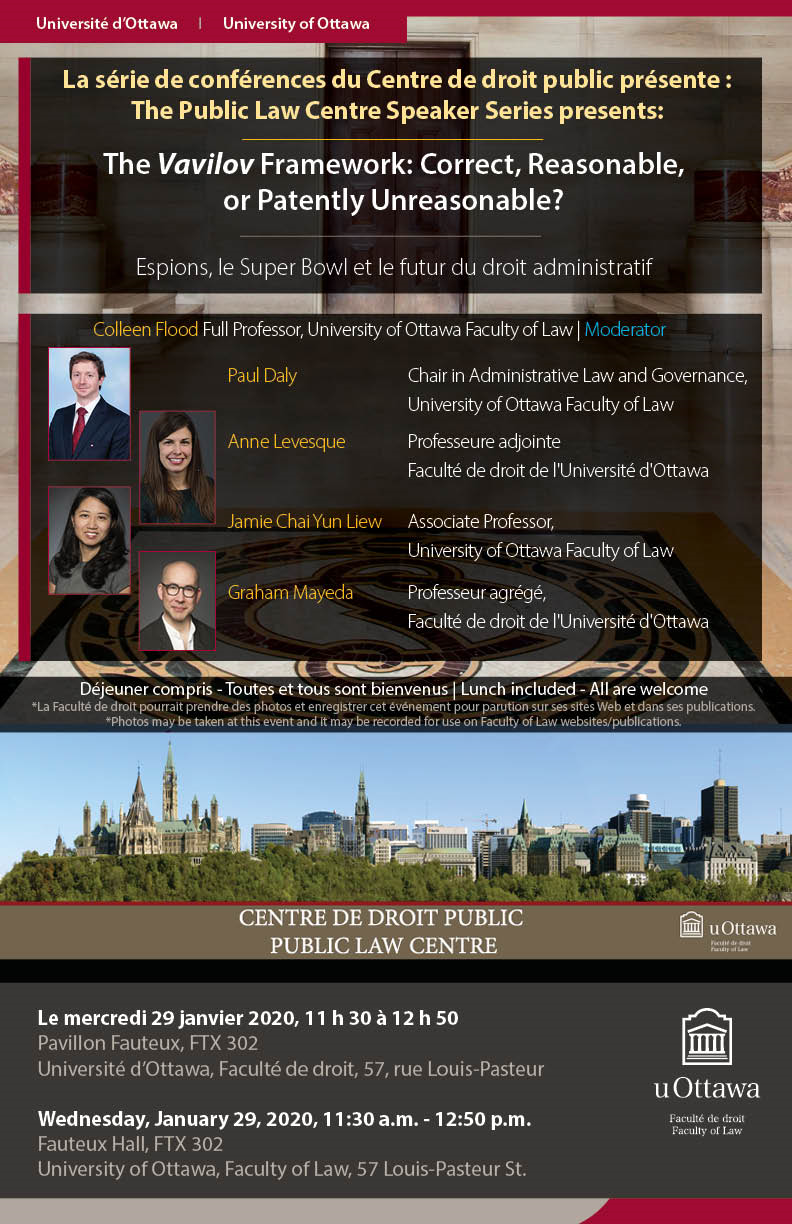New Paper: The Vavilov Framework and the Future of Canadian Administrative Law

I have posted “The Vavilov Framework and the Future of Canadian Administrative Law” to SSRN:
This paper is the first comprehensive analysis of the Supreme Court of Canada’s decision in Vavilov v. Canada (Citizenship and Immigration), 2019 SCC 65. Here, the Supreme Court rewrote its administrative law jurisprudence, aiming to bring clarity and coherence to an area of Canadian law long plagued by uncertainty. I commend the Supreme Court’s effort to comprehensively address the issues raised over the last decade by judges, practitioners and scholars but I note that the coalition assembled in Vavilov could fracture in future cases, when the Vavilov framework is sure to come under pressure.
In this paper, I lay out the Vavilov framework, describing in Parts I and II the new approaches to selecting the standard of review and to applying the reasonableness standard, before moving on in Part III to discussing how past precedents can be retrofitted to the Vavilov framework, and turning in Part IV to the role to be played by remedial discretion.
Underlying my analysis of the Vavilov framework, with its various strengths and weaknesses is a simple question: will the consensus hold? On both selecting the standard of review and applying the reasonableness standard, the majority reasons raise a number of issues, provoke several tensions and create multiple sources of pressure. In future cases, these will have to be addressed. Then, the consensus will be put to the test. In Vavilov, seven judges (on selecting the standard of review) and nine judges (on applying the standard of review) were of one mind. But their ideological preferences may cause them to diverge in cases to come and the same may prove true of lower court judges.
Download it here. Comments welcome!
This content has been updated on November 22, 2021 at 14:07.